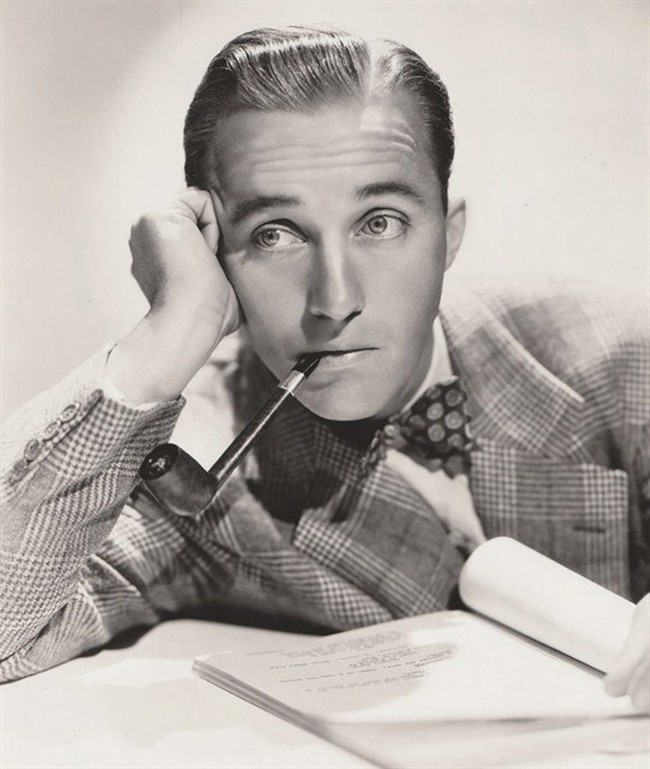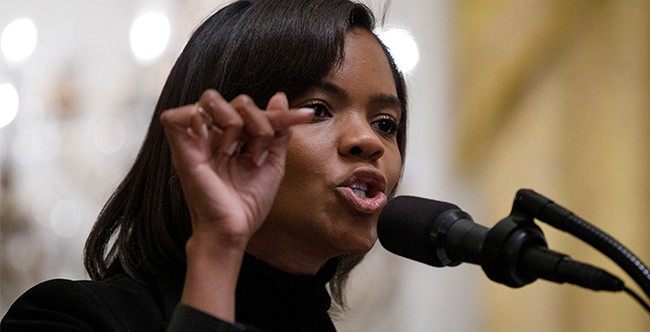
Bing Crosby, who was born on this day (May 3) in 1903, was the greatest megastar of his era, called the “Voice of America.” But he was also a generous and dedicated philanthropist, who donated fortunes to charity and was always ready to lend a friend a helping hand.
Crosby’s kindness, compassion, and empathy have too often been overlooked or denied over the years because of allegations against him made by his son, Gary, who later admitted (as Gary’s siblings had always strongly maintained) that the allegations were false—his father was a loving, not a lousy, dad. But Crosby’s kids were not the only ones to have happy memories of him, as countless charities, coworkers, students, friends, and U.S. soldiers all had their lives brightened by the Oscar-winning singer and actor Americans voted the “most admired man alive” in 1948.
Last year, I wrote about Bing’s tireless tours to entertain troops during World War II, and also his personalized, thoughtful letters to many soldiers and their families. You can read about his patriotic activities here. Bing also took a significant amount of time to visit wounded soldiers, and also children and other civilians hospitalized during the war. During one of his trips, his Jeep accidentally got behind enemy lines! Bing was even awarded a special GI Oscar for his work to keep up morale and support the troops. But GIs weren’t the only group who had cause to applaud and thank him.
Related: Bing Crosby in WWII: A Star’s Heartfelt Letters to Soldiers and Families
BingCrosby.com described some of Bing’s philanthropic efforts:
One of the earliest known contributions was a donation to the defense of the Scottsboro Boys, nine young black men accused of raping two white Alabama women. His increased radio presence allowed him to promote different causes with ease – the Red Cross, the United Appeal (now the United Way), Sister Kenny’s Polio Fund, the March of Dimes, and youth programs such as the Boy Scouts, the Girl Scouts, Campfire Girls, Boys Clubs, and 4-H Clubs.
He even recorded a number of public service announcements for radio and television, ranging from conservation (Ducks Unlimited, Trout Unlimited, Save the Atlantic Salmon Campaign, U. S. Forest Service) to causes of social import (the U.S. Olympic Team, Guide Dogs for the Blind, Toys for Tots, the Christophers, the Family Rosary Crusade, the Shriners Hospital).
In light of the above mention of Crosby’s support for the Scottsboro Boys, I would like to emphasize that Bing (who perhaps experienced a little prejudice himself in his early days as an Irish Catholic) was in fact a fighter for civil rights, who used his popularity to boost black performers. For instance, podcaster Nate Wilcox wrote, “[Bing] got Louis Armstrong the first ever equal billing given a Black performer in Hollywood. He featured Black performers regularly on his radio shows and not in demeaning ways but as his musical peers and equals. When Paul Robeson guested on his show, Bing deliberately defied racists by insisting that Robeson address him by his first name and vice versa.”
Read Also: James Baskett: History-Making Actor and ‘Uncle Remus’
Bing, a devout Catholic who actually tried to take his faith seriously, earmarked his profits from his earliest Christmas recordings, which included “Silent Night” (still one of the top five most popular Christmas recordings of all time, as Bing’s “White Christmas” is still number one), for charitable purposes. He also made uncounted contributions without fanfare to support those friends and family who were struggling through difficult times.
Bing, an avid golfer, launched a charity golf tournament in 1937 that survives to this day. Biographer Gary Giddens says that aside from public charity drives and multiple university loan programs (including to Bing’s own alma mater, Gonzaga, and historically black Howard University), Bing provided more secretive assistance and often didn’t want his charity publicized. For instance, Bing kept a “
take care of” list with the names of people he wanted to support, particularly by helping them find work.
One famous star on the “take care of” list whom Bing helped to get back into show business was Judy Garland, after the talented but troubled Judy tried to commit suicide and was fired by MGM. Bing brought Judy on his very popular radio show.
Rosemary Clooney was another star who became a close friend of both Bing and his second wife Kathryn, and Bing not only assisted her career and shared vacations with her, but was there to support her after her difficult divorce. “My fondest memory is just being able to further the friendship, deepen the friendship I had with Bing,” Rosemary said when speaking of filming the movie “White Christmas,” the title song of which, as sung by Bing, is still the number one-selling single of all time. “That’s the thing that came out of the picture that I was left with for the rest of Bing’s life. That was very important to me.”
In a 1938 article, Sharon A. Pease described Crosby as the “Squarest Guy in Hollywood,” a man who always “will go the limit for any good cause or for anyone who has befriended him.” One story Pease told was of how Bing aided pianist Joe Sullivan when the latter was in the hospital by helping to back and promote a concert to raise money for Sullivan. Pease also humorously noted that whenever “the stork” was about to arrive at “a Hollywood home,” the prospective father was likely to get an invitation to guest star on Crosby’s program.
So enjoy a movie or song today from the “Voice of America,” the “squarest guy in Hollywood,” one of those rare megastars on whom friends, coworkers, and victims of tragedy could always rely for a kind word and a helping hand.
Editor’s Note: Do you enjoy our cultural and historical content? Please support PJ Media’s work so that we can continue to bring it to you. Join PJ Media VIP and use the promo code FIGHT to get 60% off your VIP membership!








